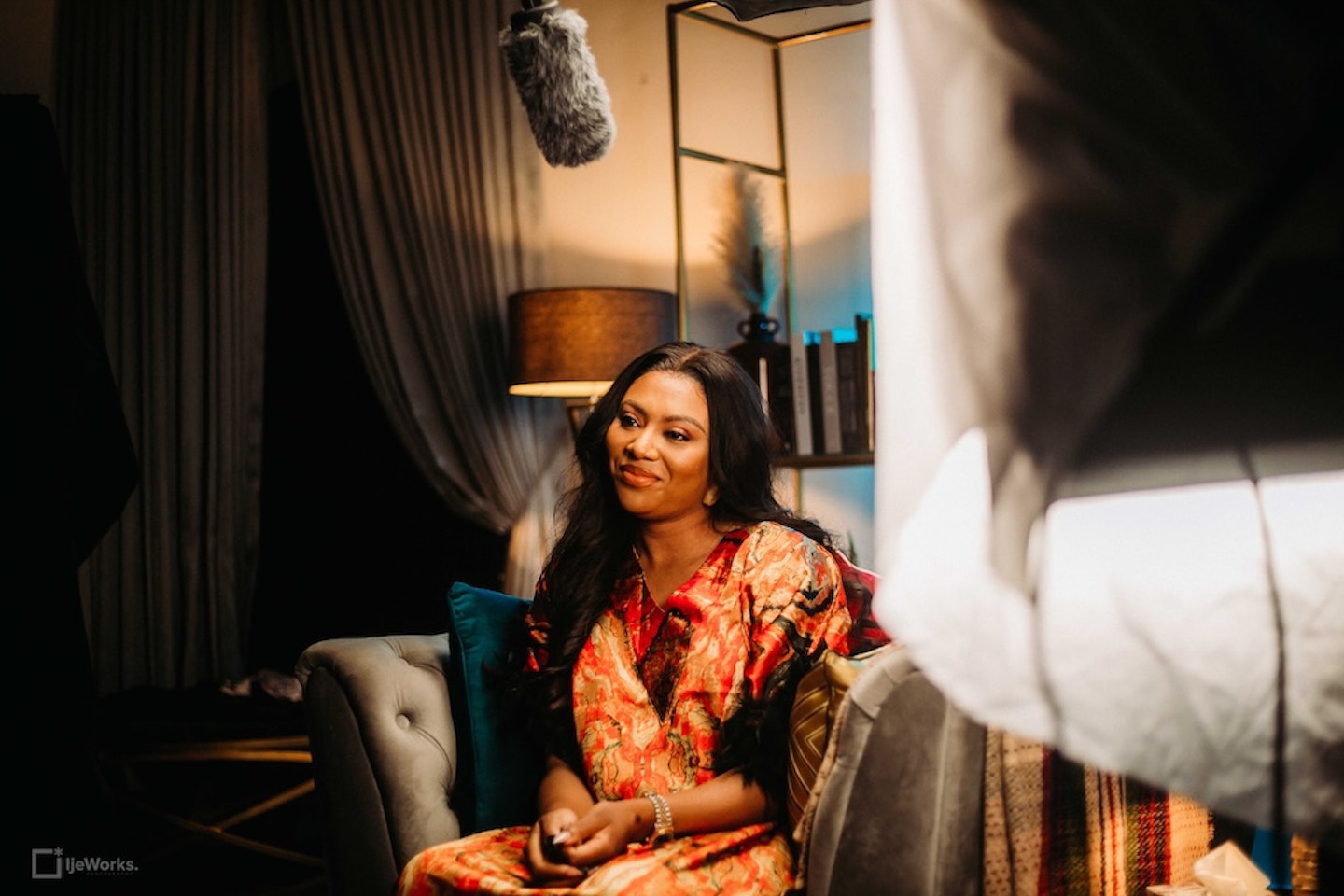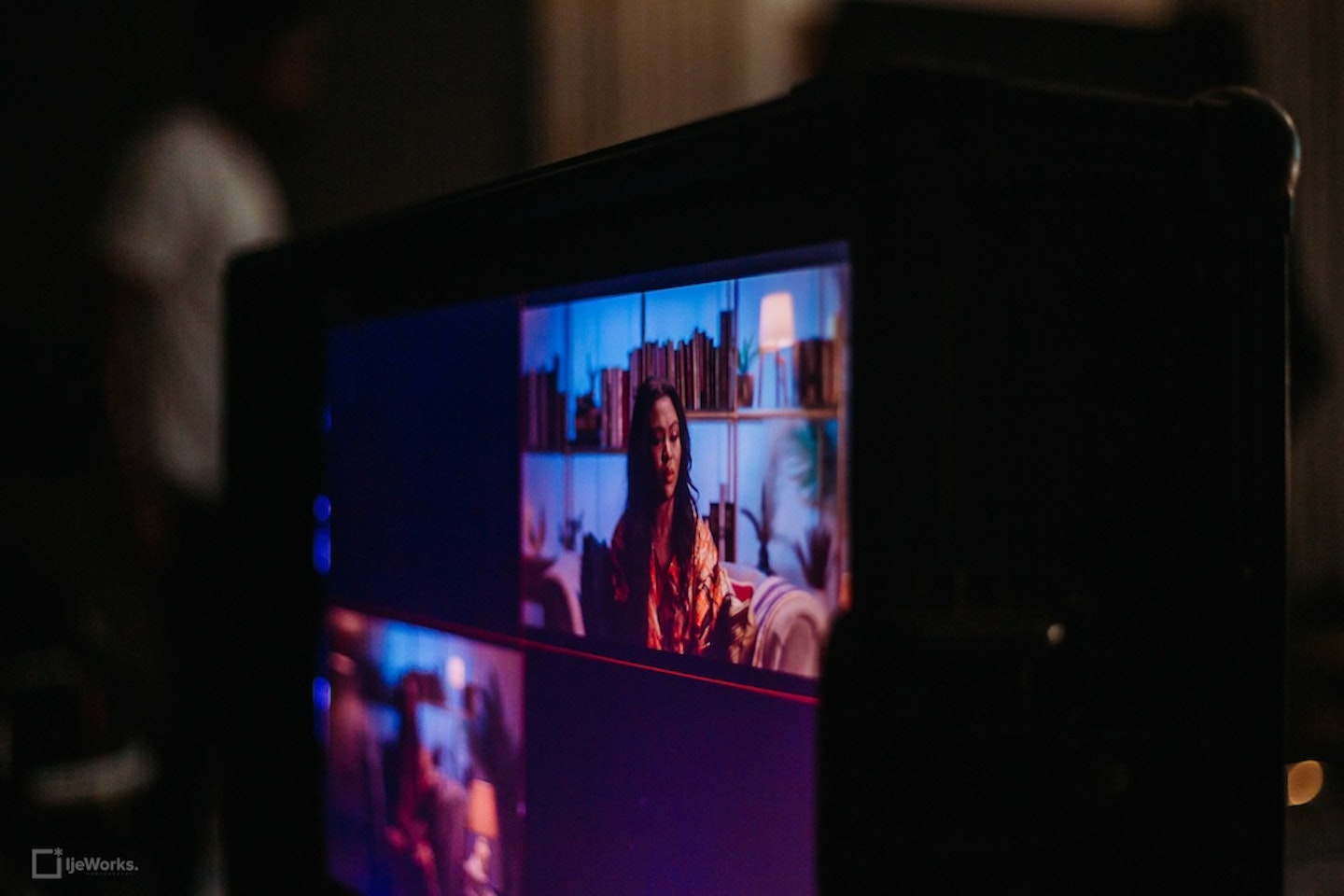For many teenagers, puberty is an awkward time where bodies are changing, emotions are high and everything is embarrassing. But for Stephanie Coker Aderinokun, who unbeknownst to her, had polycystic ovary syndrome, it felt like a whole other level. Growing up in London, the Nigeria-born presenter didn’t know why hair was growing all over neck and chin ('Obviously I was told that puberty you get hair, but I didn't expect it to cover my face,' she admits), or why her periods were so irregular.
At school, she’d learnt to associate no period with pregnancy. Stephanie wasn’t sexually active, 'So I just started thinking, "Am I the virgin Mary? What is going on? I’m growing hair like a man and I'm a virgin Mary all at the same time?"' she recalls.
In the end, it was a visit to the GP, and a subsequent ultrasound on her ovaries that saw Stephanie, now 35, diagnosed with PCOS. The hormone problem affects one in 10 women of reproductive age, and can cause irregular periods, cysts on the ovaries, and high levels of 'male' hormones in the body. There is currently no cure for the condition, and around half of all cases go undiagnosed. Many experts say that women of colour are affected more frequently and severely.

When Stephanie was diagnosed, she didn’t feel comfortable talking about it with her friends due to stigma and bullying. She was already self-conscious enough; about the hair on her legs, the bloating, that her period could start at any moment and leave her with stained clothes. The stigma surrounding the subject inspired her to create Where The Heck Is My Period?, a documentary she executive produced for Prime Video in Nigeria, available to stream around the world.
PCOS is 'rampant' among young women, and she hopes that the documentary, in which Stephanie herself and other women open up about their experiences living with it, will help educate people. 'Everybody needs to be aware of what it is and the management of PCOS; what we can do and how we can educate young girls, girls that are in secondary school and in university, because that's when it starts,' she says.
That first time she was diagnosed with PCOS gave Stephanie her first look at the frustrating ways the condition is treated by medical professionals. Her GP prescribed a birth control pill and benzoyl peroxide for her skin, but she says 'that was it'. 'Every time I've encountered a doctor, it's been OK, but it's just like, "Alright, on your way,"' she says. Through her years of experience and research, Stephanie says that doctors tend to only take PCOS seriously when it comes to its impact on fertility. They prescribe something for periods and then skin, then tell people to 'just come back' when they want to get pregnant.

The problem is, she says, that 'there's so many women that don't even want to have kids, and PCOS impacts other aspects of their lives and their bodies'. Alongside infertility, little effort is spent on the more worrying side effects and illnesses that people with PCOS are at higher risk of: type two diabetes, high blood pressure, heart disease, stroke. 'For someone to just tell you, "Come back when you want to have a baby," it's like, "But what about the havoc it's wrecking today?"' she says. 'How can I stop these from happening? What can I do? What's the holistic approach, not just [about] conception?'
For Coker, PCOS is still felt in short and long-term effects. She spends between $400 and $500 every three months on laser hair removal, and struggles with hormonal acne. Until this February, she’d gone a full year without a period, and when it came out, she bled for two weeks and passed out because her iron levels were so low.
When it came to fertility, the thing that had always been mentioned to her, Stephanie had to use IVF to have her first child. She would like to have another child, but says that IVF has failed this time, so she’s now trying naturally. With close to a million online followers, Stephanie found that her followers were judging her for being married without a child even when she was struggling through expensive IVF procedures the first time around. 'People online just want to see the end result,' she says.

Black women are likely to feel stronger impacts of PCOS – as with many conditions around maternal and sexual health – yet she feels that the stigma is even stronger within her community. As a result, she made sure that the documentary focused on the stories of women of colour, because 'when I look for stories online, I find a lot of Caucasian women talking about it, but it's hard to find Black people talking about it' for fear of being ostracised.
The stigma played a significant role in her decision to make Where The Heck Is My Period?. Returning to work after her baby, she wanted to work on something that would resonate with the people and feel truly meaningful. But when she told her mum, she was met with the same preconceptions. 'She was like, "Why would you want to do that? You're gonna tell people that you have it, you don't need to, the baby's here,"' Stephanie recalls. 'I know they're trying to protect us, but it's not really helping because everybody starts to deal with everything on their own and feel like they're the only ones going through this.'
Nearly two decades after she was diagnosed, PCOS still plays a dramatic role in Stephanie’s life – that’s why she’s now striving to be honest and raise awareness about it. 'I also want parents, mothers, to be very observant of their girl child, and when she says she misses her period and has certain symptoms for them to really take it seriously,' she says, hoping that young girls don’t feel like she did.
The fear of a parent thinking you might be pregnant 'in itself is traumatising', she says, when 'you actually know within yourself that you have not slept with anybody, but you just haven't seen your period for three months. Having that conversation and your parent maybe not believing you, that can actually leave a certain feeling with a child, a young woman that isn't really, really nice'. If more people know about PCOS, they can identify it earlier, and save everyone a whole lot of pain and trauma. The only way to break the stigma is by talking about it, and that’s what Stephanie’s set out to do.
